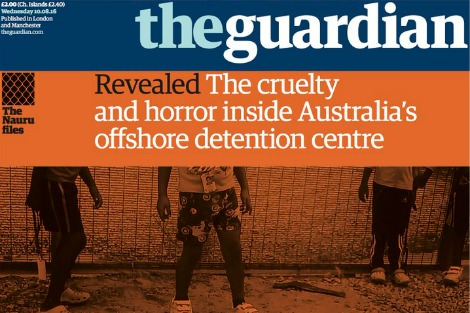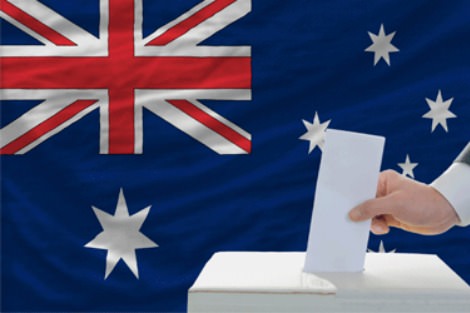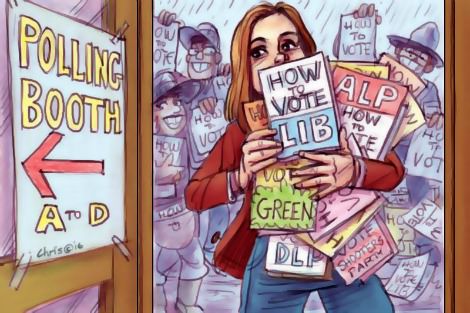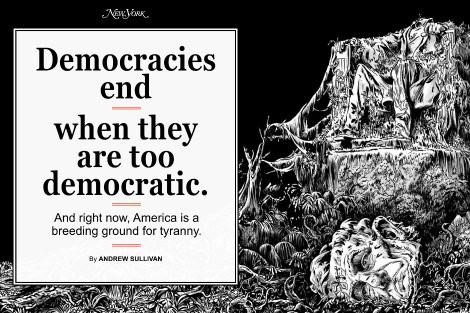Keywords: Politician
There are more than 200 results, only the first 200 are displayed here.
-

AUSTRALIA
- Fatima Measham
- 05 September 2016
5 Comments
Unless feminism abandons its individualistic, secular, western framing of freedom, it cannot presume to liberate all women. Some of its recent concerns give away limitations: whether this politician identifies as feminist, whether child-raising is self-sabotage, whether women abandon autonomy when they take their husband's name. I wonder sometimes whether it is ever possible to talk about sexual exploitation of women in Asia without getting entangled in sex positivity and legal sex work.
READ MORE 
-

AUSTRALIA
- Fatima Measham
- 11 August 2016
11 Comments
The Guardian has released incident reports that lay bare the details of life on Nauru for people detained under our immigration regime. It is an 8000-page indictment of the ethical and moral character of this country. We've been here before. We already know that the torment of children does not move the political class, nor do the indignities meted out to women. Men have died under circumstances that flow from decisions nominally made on our behalf. What would it take to break the impasse?
READ MORE 
-

INTERNATIONAL
- Antonio Castillo
- 26 July 2016
1 Comment
It has been little more a month since Colombian president Juan Manuel Santos and Timochenko, the nom de guerre of the leader of the FARC, the oldest guerrilla group in the world, proclaimed a cease-fire. In La Habana on 23 June, the two concluded four years of negotiations to end the 50 year old Colombian civil war, the longest armed conflict in the western hemisphere. The development is hopeful, but Colombian peace attempts are nothing new, and the conditions won't be easy to meet.
READ MORE 
-

AUSTRALIA
- Frank Brennan
- 25 July 2016
7 Comments
Next year marks the 50th anniversary of the amendment to the Constitution which took out the adverse references to Aborigines. Following our recent election, we are assured at least six, and possibly seven, members of our national parliament who proudly claim an Aboriginal or Torres Strait Islander heritage. They are represented in all parties and none. How good it would be if our elected Aboriginal politicians could come together across party lines and propose an amendment to the Constitution which recognises them.
READ MORE 
-

INTERNATIONAL
- Fatima Measham
- 01 July 2016
8 Comments
When the democratic exercise is no longer the aggregate of informed, reasoned choices, but a matter of mood, then the business of persuasion - politics - becomes far less about ideas and more about momentary catharsis. This shifts the function of politicians and government, from leading and dispensing equity to masturbatory aid. Even so, there are questions worth asking. But at whose expense are public moods assuaged? After catharsis, what happens next?
READ MORE 
-

AUSTRALIA
- Neve Mahoney
- 29 June 2016
18 Comments
Honestly, I could talk all day about how growing up with Rudd/Gillard/Rudd followed by Abbott/Turnbull turned a generation away from politics. I could talk even longer about how seeing (mostly) white, (mostly) male politicians is its own form of alienation. But if I'm going to be the possible swing vote, the homogenous 'youth vote', I'm going to make it count. I know that I can't afford to disconnect; if for nothing else, I need to vote for the people who can't.
READ MORE 
-

AUSTRALIA
- Katie Miller and Caitlin Meyer
- 29 June 2016
4 Comments
'I'm doing it for my kids.' This is how some supporters of Brexit explained their position before the referendum. Yet 75 per cent of voters aged 18 to 24 voted to Remain. It seems the message from 'the kids' to older voters was 'thanks, but no thanks'. The same can be seen in domestic politics here in Australia. We often hear politicians and voters talk about the effects of a policy on future generations. Yet the issues of concern to young people themselves simply don't get much attention.
READ MORE 
-

ENVIRONMENT
- Neil Ormerod
- 22 June 2016
23 Comments
It is now 12 months since Pope Francis issued his environmental encyclical Laudato Si'. He opined, 'Although the post-industrial period may well be remembered as one of the most irresponsible in history, nonetheless there is reason to hope that humanity at the dawn of the 21st century will be remembered for having generously shouldered its grave responsibilities.' Where are the Australian politicians who can give hope to the coming generation by focusing our attention on this most urgent issue?
READ MORE 
-

AUSTRALIA
- Melissa Sweet
- 14 June 2016
6 Comments
When politicians and journalists speak about 'health' in an election context, they invariably are referring to healthcare, and usually hospitals at that. However, the health of individuals and communities is the result of many factors, of which access to healthcare is just one determinant. Climate change - the defining issue for public health this century, according to the World Health Organization's outgoing director general Dr Margaret Chan - barely figures in election health debate.
READ MORE 
-

AUSTRALIA
- Frank Brennan
- 10 June 2016
46 Comments
Sadly, the major political parties have forfeited any claim to govern in their own right because they have caused such disillusionment among so many voters about other policy issues with strong moral overtones. Any voter impressed with Pope Francis' encyclical Laudato Si' or inspired by his visits to asylum seekers on the islands of Lampedusa and Lesbos could not blithely vote for either of the major parties, without first determining how to place some continuing political and moral pressure on them.
READ MORE 
-

AUSTRALIA
- Jeff Sparrow
- 08 June 2016
9 Comments
Will Clinton defeat Trump? Perhaps - but the polls already show him doing far better than anyone expected. More importantly, an electoral loss might mean the end of Donald Trump but it won't destroy Trumpism. The constituency into which the Donald has tapped will almost certainly grow under the administration of a corporate Democrat like Clinton, even if it manifests in a different form. And what then? How much larger and heftier will the barriers against the popular will have to become?
READ MORE 
-

ENVIRONMENT
- Greg Foyster
- 03 June 2016
11 Comments
All politicians and political parties select the statistics and 'frame' that best suits their position. But even among the slippery-tongued ranks of federal parliamentarians, Greg Hunt is in a league of his own. The frustrating thing is that proving him wrong is almost counterproductive. One of the main reasons for stalled action on climate change is the issue has become overly abstract. Debating technicalities with the Environment Minister just reinforces these ways of viewing climate change.
READ MORE 